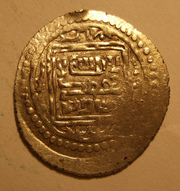Trade and Economic Integration and Regulation of the Persian's
Trade and Economic Base

Darius the Great introduced a silver and gold coinage system for currency within the empire along with a tax system that was specifically made to each state of the empire. For example Babylon was the most prosperous city-state in the empire therefore they would have the highest taxes of any state in the empire. Trade was encouraged throughout the empire allowing for goods to be sent to the far reaches of the empire. Although there were tariffs placed on the trade which accounted for much of the empires revenue. Persians also taxed religious institutions for the first time along with agriculture and industrial complexes. The people themselves did not pay taxes, but rather the province as a whole. When the Persians would conquer a civilization they would assimilate their culture and economy into their empire.
Effects

This emphasis on trading all around the empire caused King Darius to implement the construction of the silk road which allowed for faster trading and a quicker spread of ideas and goods. This currency system that was implemented caused there to be a need for banks and a system for people take care of their money. The money collected from the taxes went toward the military which in turn helped to expand the empire thus increasing the reach of the empire as they absorbed the conquered people's economies.
